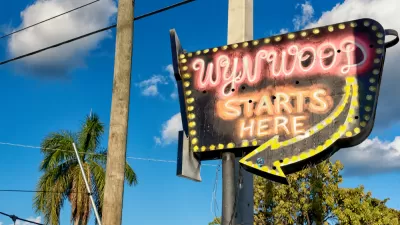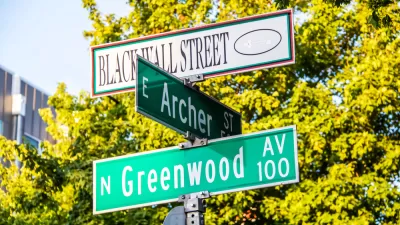I had the opportunity to spend a day at the Vacant Properties conference late last month which, if you’re not familiar with the “movement,” you should be. Granted it’s not for everyone. At the opening plenary session, the moderator asked “who is here from a weak market city?” A room full of hands went up with a collective giggle. It felt like an AA meeting for cities. Admitting you have a problem is the first step toward addressing it.
I had the opportunity to spend a day at the Vacant Properties conference late last month which, if you're not familiar with the "movement," you should be. Granted it's not for everyone. At the opening plenary session, the moderator asked "who is here from a weak market city?" A room full of hands went up with a collective giggle. It felt like an AA meeting for cities. Admitting you have a problem is the first step toward addressing it.
I said "movement" in quotes because that's what the organizers of the conference were very thoughtful to emphasize. Solving vacancy issues in struggling cities is something that requires a lot more than a conference. The hope is that the conference balloons into a network of ideas and resources that help to elevate the issue. The web link above already plots a course in this direction. This could be a good thing for people faced with the seemingly intractable problem of vacancy. Maybe a spotlight might make urban decline an issue that the federal government could be more proactive in addressing? Then again, I could be holding out hope.
There were two aspects of the conference that were extremely refreshing. The first was the mix of people attending. City employees, planners, bankers, realtors, real estate agents and community representatives from a wide range of cities were all in attendance. These different perspectives raised some very interesting issues and, at times, there was real tension exhibited by participants. The tension was almost cathartic. People were able to ask tough questions of one another in hopes of finding some pragmatic solutions to problems that they all share.
The second was the subject matter itself. Not that vacancy itself was the focus, but that a specific issue was analyzed in detail. The problem of something like vacancy is a lot more specific than a broad topic like transportation or economic development. That said, once you scratch the surface a bit on the causes and effects of vacancy, you learn a lot about how cities work (and at times don't). The conference represented a kind of issues-based urbanism rather than one based on some kind of planning ideal.
For anyone dealing with issues of urban decline, I would suggest getting involved. A ballroom full of people were asking for help and looking to learn. I think a lot of struggling cities would thank you.

Planetizen Federal Action Tracker
A weekly monitor of how Trump’s orders and actions are impacting planners and planning in America.

Map: Where Senate Republicans Want to Sell Your Public Lands
For public land advocates, the Senate Republicans’ proposal to sell millions of acres of public land in the West is “the biggest fight of their careers.”

Restaurant Patios Were a Pandemic Win — Why Were They so Hard to Keep?
Social distancing requirements and changes in travel patterns prompted cities to pilot new uses for street and sidewalk space. Then it got complicated.

Platform Pilsner: Vancouver Transit Agency Releases... a Beer?
TransLink will receive a portion of every sale of the four-pack.

Toronto Weighs Cheaper Transit, Parking Hikes for Major Events
Special event rates would take effect during large festivals, sports games and concerts to ‘discourage driving, manage congestion and free up space for transit.”

Berlin to Consider Car-Free Zone Larger Than Manhattan
The area bound by the 22-mile Ringbahn would still allow 12 uses of a private automobile per year per person, and several other exemptions.
Urban Design for Planners 1: Software Tools
This six-course series explores essential urban design concepts using open source software and equips planners with the tools they need to participate fully in the urban design process.
Planning for Universal Design
Learn the tools for implementing Universal Design in planning regulations.
Heyer Gruel & Associates PA
JM Goldson LLC
Custer County Colorado
City of Camden Redevelopment Agency
City of Astoria
Transportation Research & Education Center (TREC) at Portland State University
Camden Redevelopment Agency
City of Claremont
Municipality of Princeton (NJ)






























